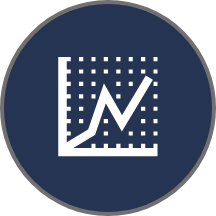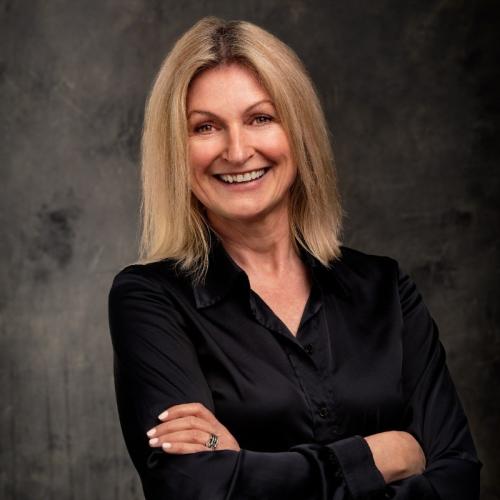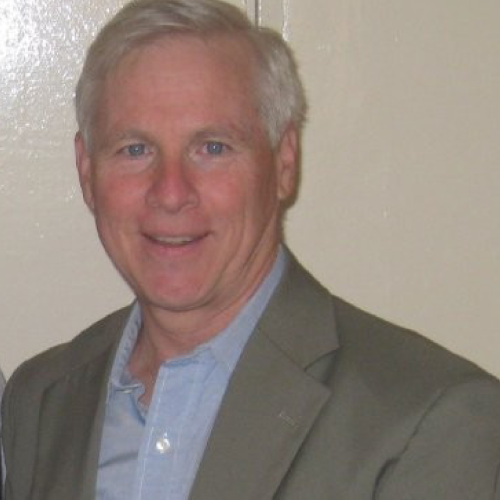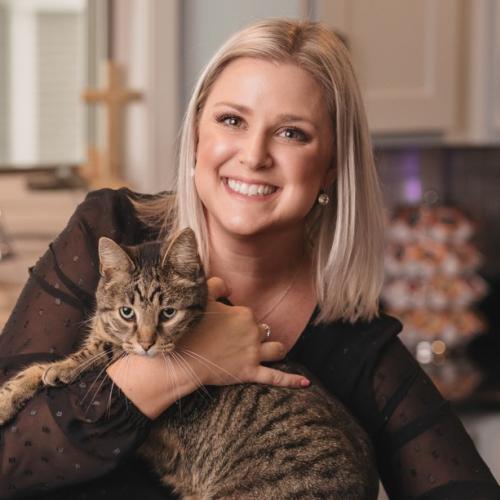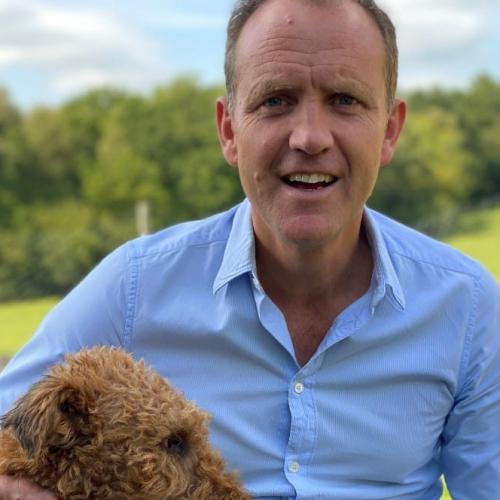Starting with any relevant education, walk me through the twists and turns of your career to date? How did one opportunity lead to the next + what was the key takeaway/ experience in each role + how did this lead you to where you are now)
After graduating from Boston University, I majored in communication design and computer science. I had initially planned to venture into advertising, as it was one of the few industries that emphasised "creating" and "constructing" innovative solutions to challenges. My journey led me to discover my true passion - entrepreneurship, specifically in Civic Technology. My first startup centred on tracking public transportation in Boston when there were no countdown clocks at stations or no countdowns in Google Maps, and tools like City Mapper didn't exist. A Boston commuter, eager to know when their bus or train would arrive, would stand amidst waist-deep snow, peering up the street in anticipation.
This fusion of entrepreneurship and advertising presented me with an unexpected opportunity - a Head of Innovation, Asia Pacific role for Ogilvy & Mather, a large American-based advertising agency. I had yet to visit Asia before, so I accepted the job and relocated to Hong Kong in 2011, entering an unknown world with no preset expectations. Over the subsequent six years, my career witnessed an exciting trajectory. I clinched my first Cannes Lion for creative advertising, gained substantial knowledge about manufacturing in Shenzhen, advised McDonald's on designing and manufacturing affordable toys, and became a consultant at Facebook. There, I focused on pioneering ways for users to interact with VR and 360° content and led an engineering team that designed IoT VR cameras.
my first and enduring love: civic technology and aiding governments and NGOs in developing the platforms, products, tools, and services they require to achieve sustainable development goals
In 2015, our department evolved into an independent entity known as Glorious Labs. With considerable investment and funding from Facebook and various VCs, we specialised in designing and manufacturing multi-user shared VR cameras. As Chief Technology & Product Officer, I led the team that developed a groundbreaking product, winning us the Top Pick in the AR/VR category at Tech Crunch Disrupt in 2017. This accomplishment led me back to my first and enduring love: civic technology and aiding governments and NGOs in developing the platforms, products, tools, and services they require to achieve sustainable development goals.
In 2018, I relocated to London and founded Karakoram, the world's first "Developmental Innovation" consultancy. As the United Nations Development Programmes' "Innovation Partner", we've supported the designing and creation of various tools and services. These range from cost-effective telemedicine tools that help prevent the spread of COVID-19 in low and middle-income countries to data platforms leveraging AI to better position aid workers in regions with limited infrastructure.
That same year, Karakoram initiated its first impact spin-out, Pastoral - the world's pioneering regenerative livestock farming platform for low-income farmers. To work collaboratively with farmers to reduce greenhouse gas emissions, Pastoral and Karakoram aspire to establish the gold standard for balancing human and planetary needs, reducing inequalities, and fostering sustainable development.
What was the pivotal moment that put you on your current founder path?
In 2018, right after we launched Karakoram, we received a unique call to action. The Innovation Hub at the United Nations Development Programme in Singapore invited us to join their inaugural "Cultivate" Incubator for Innovation in Sustainable Agriculture. They challenged us to find ways to cut down the greenhouse gas emissions from livestock farming and ranching, but in a way that wouldn't harm the income or self-respect of farmers and ranchers worldwide. These folks are not just essential to many world economies, but they're also ingrained in the cultures and religions of many countries.
The Innovation Hub at the United Nations Development Programme in Singapore invited us to join their inaugural "Cultivate" Incubator for Innovation in Sustainable Agriculture
Though we weren't precisely farming experts, the UN saw value in our hands-on user research skills, our knack for crafting low-cost tools that can function with minimal internet connectivity, and our genuine excitement for tackling big problems. They understood that we needed to lessen the environmental toll of an industry hurting our planet. At the same time, they recognised that people would continue eating substantial amounts of animal products, like proteins and dairy, in the immediate future. They also knew that many cultural groups worldwide, such as the Masai in Kenya, are unlikely to quickly transition to lab-grown or vegan meats to address our current climate predicament.
Given all this, we gladly accepted the UN's challenge to create a tool to promote regenerative farming practices. We aimed to design a tool for lower- and higher-income countries and even in areas with patchy connectivity. Our goal was to support farmers in their transition to regenerative agriculture and help them see increased profits from this change.
Can you provide a quick summary of the technology/ area of innovation and its potential application?
Pastoral is an innovative technology platform that revolutionises livestock farming by providing low-cost tools for regenerative practices and leveraging advanced sensors, AI, and satellite data with the potential to add over £400m yearly in new net profit to farmers in low and middle-income countries, as well as rural areas of high-income countries like the UK and the US, Pastoral aims to transform the agricultural landscape. Its sustainable approach can reduce greenhouse gas emissions by nearly 2.13 gigatons, equivalent to 21,300 fully-loaded U.S. aircraft carriers EVERY YEAR, significantly mitigating climate change and promoting a more sustainable future.
What stage are you at?
Pastoral has successfully graduated from the United Nations Development Programme (UNDP)’s “Cultivate” incubator for innovation in sustainable agriculture, won the inaugural 2022 “Entrepreneurs Award in Social Innovation” from the City of London and the Company of Entrepreneurs, closed £200k in pre-seed funding, graduated from the prestigious 2023 Plug & Play AgriTech Accelerator, was selected as one of the top 100 SME’s in the UK for 2023 by EB, and was recently accepted into the Barclays AgriTech Bridge program.
Discuss the biggest challenges of getting to this point? With the benefit of hindsight, what would you have done differently if anything?
One of the most significant challenges in reaching where we are today has been focusing on deriving solutions from hard data rather than diverting towards creating "flashy technology" solutions, such as lab-grown meat. Our roots aren't inherently grounded in farming or livestock, nor does Pastoral have ties with the meat industry or vegan associations. Instead, we've simply been guided by complex data, honing in on sectors with the highest greenhouse gas emissions and designing practical tools to reduce them in the most timely and pragmatic manner effectively.
Sadly, there's a perception among many VCs that livestock farming is "exploitative"
Sadly, there's a perception among many VCs that livestock farming is "exploitative". Despite outwardly stating their mission to reduce greenhouse gas emissions by "any means", they often prefer to invest in alt-meat, meat replacement, or cell-cultured meat ventures. This is primarily because the PR narrative is more straightforward and can garner more tweets than a seemingly mundane livestock farming venture.
Looking back, it's clear that forging partnerships is more important than ever. Collaborating with large organisations such as the United Nations or events and research organisers like Kisaco Research is vital. These alliances stand alongside and behind Pastoral, reinforcing our mandate and vision, despite us appearing to be "just another livestock company".
How have you approached funding?
We always look for VC partners who bring more than just money but also bring legitimacy in a space where we need more farming credentials but large civic technology ones and who can be hands-on in helping us achieve our mandate. We have a strong group of 15-20 “committed VCs” with whom we spend significant time developing rounds and relationships over a 12+ month timeline.
Have there been any pivot points in the company’s lifetime? What triggered these? Has the value proposition changed?
Our initial mandate from the United Nations focused on crafting tools for livestock farmers and ranchers in low-and-middle-income countries, not dedicating any attention to high-income counterparts. However, the substantial costs associated with early product development necessitated large grants and subsidies, enabling these lower-income users to embrace the role of early adopters.
Venture capitalists typically shy away from non-profit or low-profit ventures. Without NGOs' persistent, strong, and continuous support beyond the initial phase, we were compelled to shift our focus progressively towards higher-income farmers and ranchers to sustain our product development.
we continue to balance pragmatism with our mission
Today, we continue to balance pragmatism with our mission. We divide our resources—time, energy, and funding—between high-income and low-income farmers. We firmly stand by the value proposition that all farmers, regardless of income level, can benefit from our tools and methodology.
What has the been the greatest source of help/ guidance along the way?
The United Nations are consistently our greatest supporter and source of greatest help and guidance. They are the source of our mandate and the origin of our challenge statement, with the support that continues to permeate our work. Second is our fantastic board, comprised of private and public sector individuals. We additionally hope to call out the Company of Entrepreneurs, an aspirant Livery Company of the City of London, for their continued support of Pastoral and their awarding of Pastoral the inaugural ‘Entrepreneurs Award in Social Innovation’ in 2022.
Best advice you’d pass on to other founders?
Vision and Passion: Have a clear vision for what you want to accomplish and be passionate about it. Your enthusiasm will be infectious and can inspire your team, investors, and customers.
Resilience: Building a startup is an intense experience of ups and downs. There will be challenges and failures, but it's crucial to remain resilient, learn from these experiences, and keep pushing forward.
Customer Focus: Always keep your customers at the center of everything. Listen to their feedback, understand their needs, and build solutions that deliver real value.
Team Building: Surround yourself with a strong and diverse team. You can't do everything alone, so having competent, reliable individuals who can contribute their unique skills and perspectives is vital.
Adaptability: The ability to adapt is critical in the fast-paced startup world. Market trends and technologies constantly change, so be prepared to pivot and adapt your strategies as necessary.
Networking: Build strong relationships with other entrepreneurs, potential investors, mentors, and industry leaders. Their advice, support, and connections can be invaluable.
Financial Prudence: Be mindful of your spending, especially in the early stages. Bootstrapping can be challenging but can also teach you to be resourceful and strategic about your investments.
Work-Life Balance: While it's important to be dedicated and hardworking, remember to take care of your health and well-being. Find a balance that allows you to recharge and avoid burnout.
What do you think are broadly the biggest needs and opportunities in the Animal Health and Petcare markets?
The Animal Health markets are witnessing several significant changes that present needs and opportunities. One of the key industry changes is the rising consumer demand for transparency and sustainability in animal products, driven by a growing awareness of environmental and ethical considerations. Consumers are increasingly seeking assurances that the animal products they consume are produced with low-carbon practices and align with their values. Additionally, the emergence of alternative meat options, such as plant-based and cell-cultured meats, has intensified competition and created a need for traditional livestock farmers to differentiate their products and compete in this evolving market.
Consumers are increasingly seeking assurances that the animal products they consume are produced with low-carbon practices and align with their values.
In response to these industry changes, Pastoral recognises the need for farmers to demonstrate the sustainability of their practices and certify their products as "low carbon." We provide farmers with a comprehensive solution that utilises data and technology to measure and monitor their environmental impact. Pastoral enables farmers to track key carbon emissions, soil health, and biodiversity metrics by leveraging satellite data, IoT sensors, and AI-powered analytics. This data-driven approach empowers farmers to certify their products as environmentally friendly, meeting the demands of conscious consumers and differentiating their offerings in the market.
Moreover, Pastoral is committed to reshaping the narrative surrounding livestock farmers and ranchers. We believe that farmers are the heroes in the climate story, playing a vital role in regenerative farming and sustainable land management. Through our platform, we provide farmers with the tools and knowledge to adopt regenerative practices that mitigate their environmental impact and enhance the health of their land. By highlighting these efforts and showcasing the positive contributions of livestock farmers, we aim to combat the prevailing narrative that portrays them as villains.
What’s going to have the single biggest impact on change in your area of the market?
The emergence and standardisation of carbon credit requirements will have the biggest impact on the Animal Health market change. As sustainability and carbon neutrality become increasingly important considerations for consumers, there is a growing need for meat and dairy wholesalers to incentivise net-zero schemes and support sustainable practices. Like the organic food market, wholesalers can pay a premium for sustainable and low-carbon meats, encouraging farmers to adopt regenerative farming techniques and reduce their carbon footprint.
The global narrative surrounding climate change has shifted consumer behaviour, with end consumers willing to pay a premium for sustainable products that come with certified and verifiable proof of their carbon credentials. This demand for transparency and accountability drives the need for standardised carbon credit requirements and robust certification processes. By providing a clear framework for measuring and validating carbon reductions, carbon credit schemes enable wholesalers and consumers to make informed choices and support products with credible environmental credentials, avoiding "greenwashing" practices.
What do the next two years have in store for you?
Pastoral is thrilled about the imminent close of its Seed round, where we're raising £3.5m. With this funding, we'll be able to extend our reach across the US and UK, all while actively exploring avenues for expansion in middle and low-income countries such as Kenya, Brazil, and Pakistan. We also plan to refine our hardware technology, ensuring it's even more user-friendly for ranchers and farmers. We aim to achieve this by implementing a "hub and spoke" system for streamlined data collection and introducing innovative tools for collecting animal data. By the conclusion of 2025, our goal is to boast over 400,000 users and celebrate having mitigated our first megaton of CO2. This significant milestone will primarily be due to the remarkable increase in grassland carbon sequestration, made possible by implementing high-intensity mob grazing, rotational grazing, and planned grazing methodologies.




